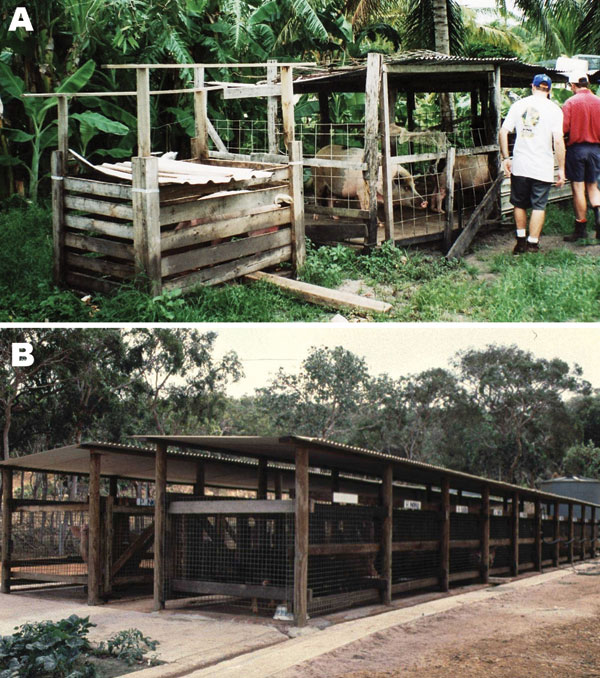Volume 14, Number 11—November 2008
Dispatch
Domestic Pigs and Japanese Encephalitis Virus Infection, Australia
Figure 1

Figure 1. Pig housing in Badu Island. A) Typical backyard pig pen in community before removal in 1998 and B) Badu Island piggery, where pigs have been housed since late 1998.
Page created: July 16, 2010
Page updated: July 16, 2010
Page reviewed: July 16, 2010
The conclusions, findings, and opinions expressed by authors contributing to this journal do not necessarily reflect the official position of the U.S. Department of Health and Human Services, the Public Health Service, the Centers for Disease Control and Prevention, or the authors' affiliated institutions. Use of trade names is for identification only and does not imply endorsement by any of the groups named above.